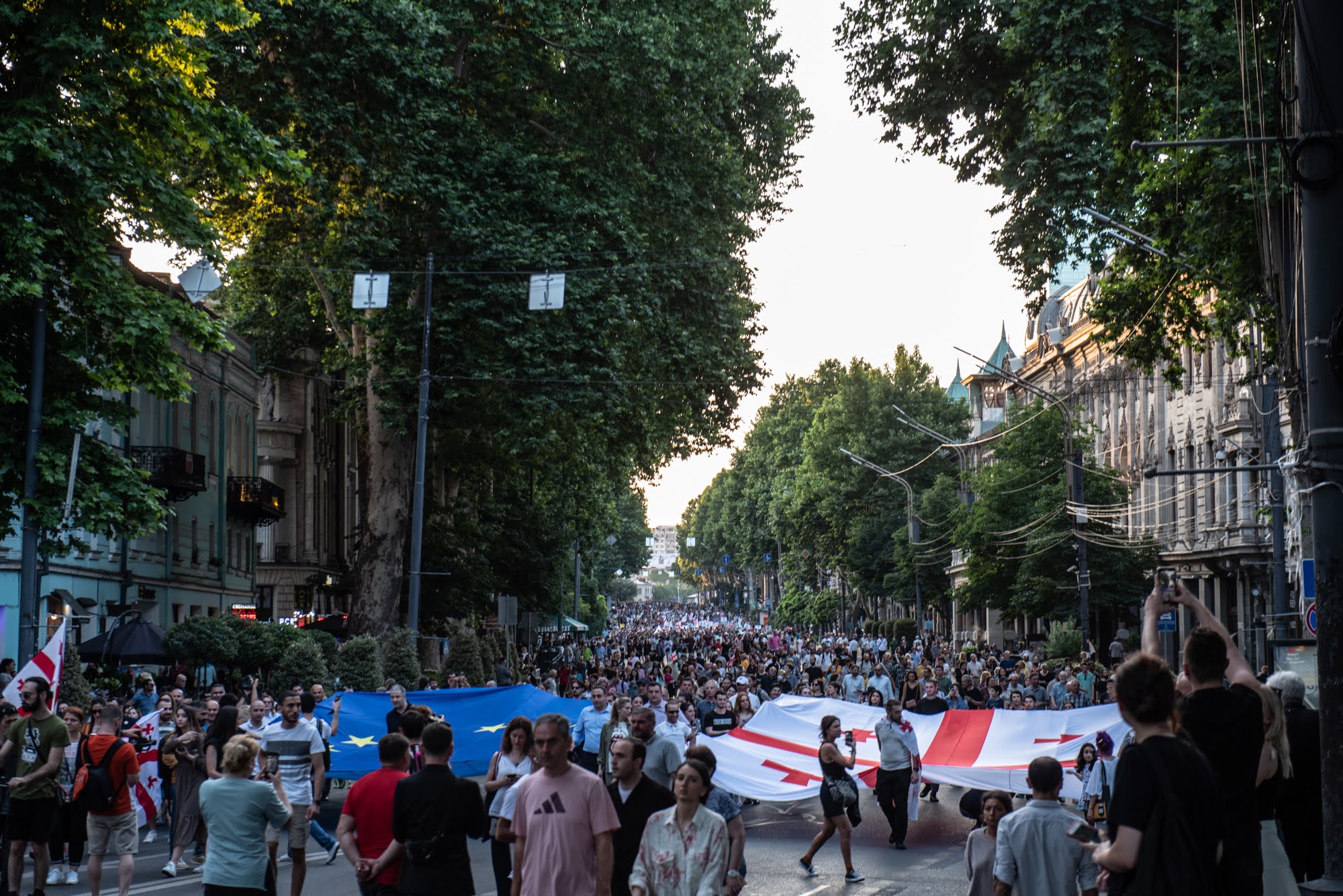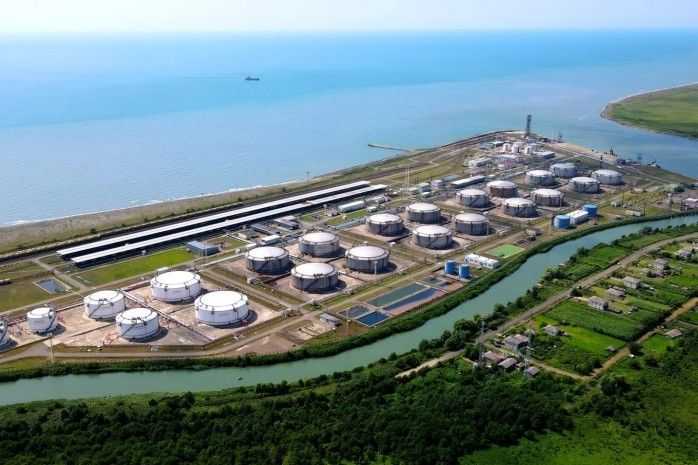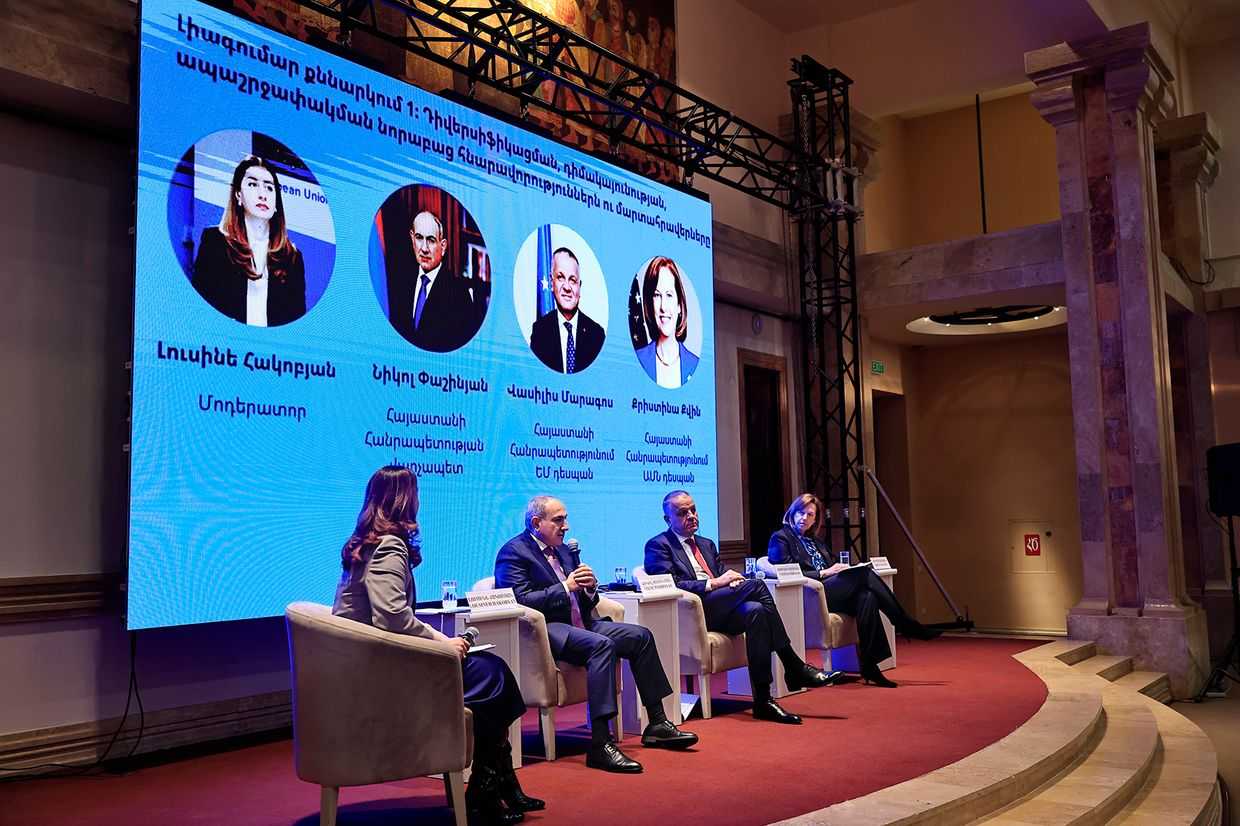
The European Union has declined to grant Georgia membership candidate status while granting it to Moldova and Ukraine at a meeting of the heads of EU member states in Brussels.
At the meeting on Thursday, the EU Council decided to follow the recommendations of the EU Commission to give Georgia a list of conditions they must meet before their application could be reexamined.
Georgia, Ukraine, and Moldova all applied for EU membership soon after the Russian invasion of Ukraine.
The three countries were previously not expected to apply for several years, however, the invasion created renewed political will in Europe to speed up the process. Georgia, once seen as the top candidate for membership among the EU’s Eastern Partnership, has come under increasing pressure from Brussels in recent years due to perceptions of democratic backsliding, including rising political polarisation, a lack of judicial independence and media freedom, and the unofficial influence of Billionaire Bidzina Ivanishvili on the government.
Speaking at a press conference following the meeting, the president of the EU Council, Charles Michel, said the EU wanted to work closely with the Georgian authorities and people to ‘work in the right direction’.
‘If there is a political will, in the political landscape within Georgia, it could be possible for them to make huge progress because I know that they know exactly what’s needed in order to take steps in the right direction’, he said.
Despite Georgia being set aside in favour of Moldova and Ukraine, Georgian Prime Minister Irakli Gharibashvili hailed what the EU has labelled Georgia’s ‘European perspective’ as a ‘historic day’ for Georgia.
‘We are ready to implement all priorities in order to get the candidate status soon’, he wrote on twitter, and congratulated Moldova and Ukraine on receiving candidate status outright.
President Salome Zurabishvili also called it a historic day. ‘Now, we’re ready to work with determination over the next months to reach the candidate status’, she tweeted. On Wednesday evening, the President vowed to veto all bills put forward by the government that would take the country in the ‘wrong direction’, while immediately vetoing a controversial surveillance law.
[Read more: Gharibashvili defiant following massive pro-EU demonstration]
During the EU Council’s press conference, European Commission President Ursula von der Leyen directly addressed the Georgian people.
‘The enormous desire you have and the longing to the European Union is the strongest push forwards on the path towards the European Union’, she said.
Following the EU Commission’s recommendation not to grant Georgia candidate status last week, tens of thousands of Georgians came to the streets in the largest public demonstration in recent memory.

After the Council’s decision was announced a group of prominent activists, journalists, and civil society groups held a press briefing in which they called on people to come to attend another demonstration outside parliament at 20:00 on Friday. They said they would then announce their demands and their future plans.
At the previous demonstration on Monday, protest leaders vowed to conduct a campaign of civil disobedience if the government did not meet the demands they would announce.
Georgian Public Defender Nino Lomjaria expressed sadness at the EU Council’s decision. ‘How much did you cry today?’, she asked in a post on Facebook.
‘Every day from tomorrow to the end of the year is a struggle for each of us, according to our mandate and capabilities’, she wrote. ‘Georgia should get the [candidate] status at the end of the year! There is no other way, no other salvation!’









